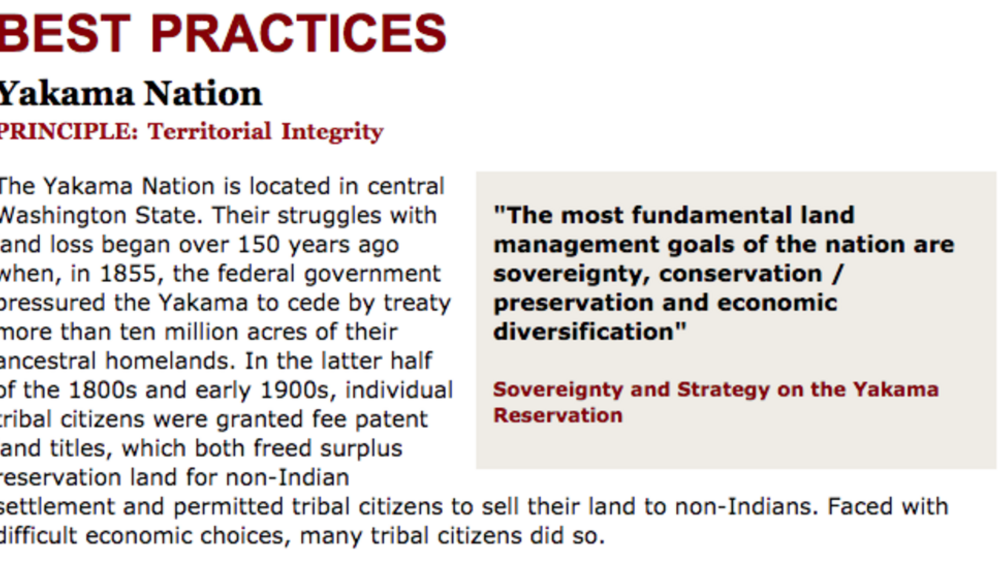Indigenous Governance Database
Yakama Nation Land Enterprise
Image

Best Practices Case Study (Territorial Integrity): Yakama Nation
The Yakama Nation is located in central Washington State. Their struggles with land loss began over 150 years ago when, in 1855, the federal government pressured the Yakama to cede by treaty more than ten million acres of their ancestral homelands. In the latter half of the 1800s and early 1900s,…
